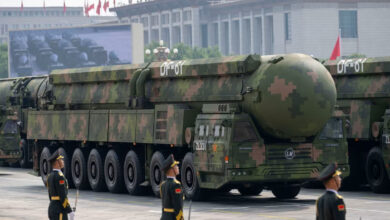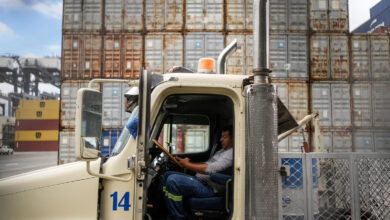
Ethnic Uighur militants from western China are increasing their presence in Indonesia, China's Foreign Ministry said on Thursday, after Indonesian security forces said they killed two Uighurs belonging to a militant network.
Indonesia has launched an aggressive, military-backed, security campaign in the jungles of Sulawesi island as it battles the threat from growing domestic support for the Islamic State militant group.
Indonesian police said the two men killed in a clash on Tuesday were from China's Uighur Muslim minority who had joined Indonesia's most high-profile backer of Islamic State, a militant called Santoso, in central Sulawesi.
Santoso, Indonesia's most wanted man, has been on the run for more than three years.
Chinese Foreign Ministry spokesman Lu Kang said he had noted the reports about the shootout and was trying to find out more.
"China and Indonesia are both victims of terrorism and are facing new threats from the changing international and regional counter-terrorism environment," he told a daily news briefing.
"In recent years, the East Turkestan Islamic Movement (ETIM) terrorist forces have continued to increase their infiltration of Indonesia and have linked up with Indonesian terrorist extremist groups and have opened a transhipment route for people to participate in international terrorist activities," Lu added.
"This is not only threatens China's national security but is also a real danger to Indonesia's and the region's social stability."
China says the ETIM is a militant group with ties to al Qaeda and it wants to establish an independent state called East Turkestan.
Lu said China and Indonesia supported and understood each other on counter-terrorism and had very good cooperation, and China was willing to increase that.
Four Uighur men were jailed last year in Indonesia for attempting to join the Sulawesi-based militants.
Hundreds, perhaps thousands, of Uighurs keen to escape unrest in their homeland of Xinjiang in western China have traveled clandestinely via Southeast Asia to Turkey.
China says they often end up crossing into Syria and Iraq to fight for Islamic State militants.
Hundreds of people have been killed over the past few years in resource-rich Xinjiang, on the borders of central Asia, in violence between Uighurs and ethnic majority Han Chinese.
Beijing has blamed much of the violence on militants led by ETIM.
Rights groups and exiles say anger at Chinese controls on the religion and culture of the Uighurs is at the root of unrest in Xinjiang, not a yearning for a separate state.
China denies any repression in Xinjiang.




